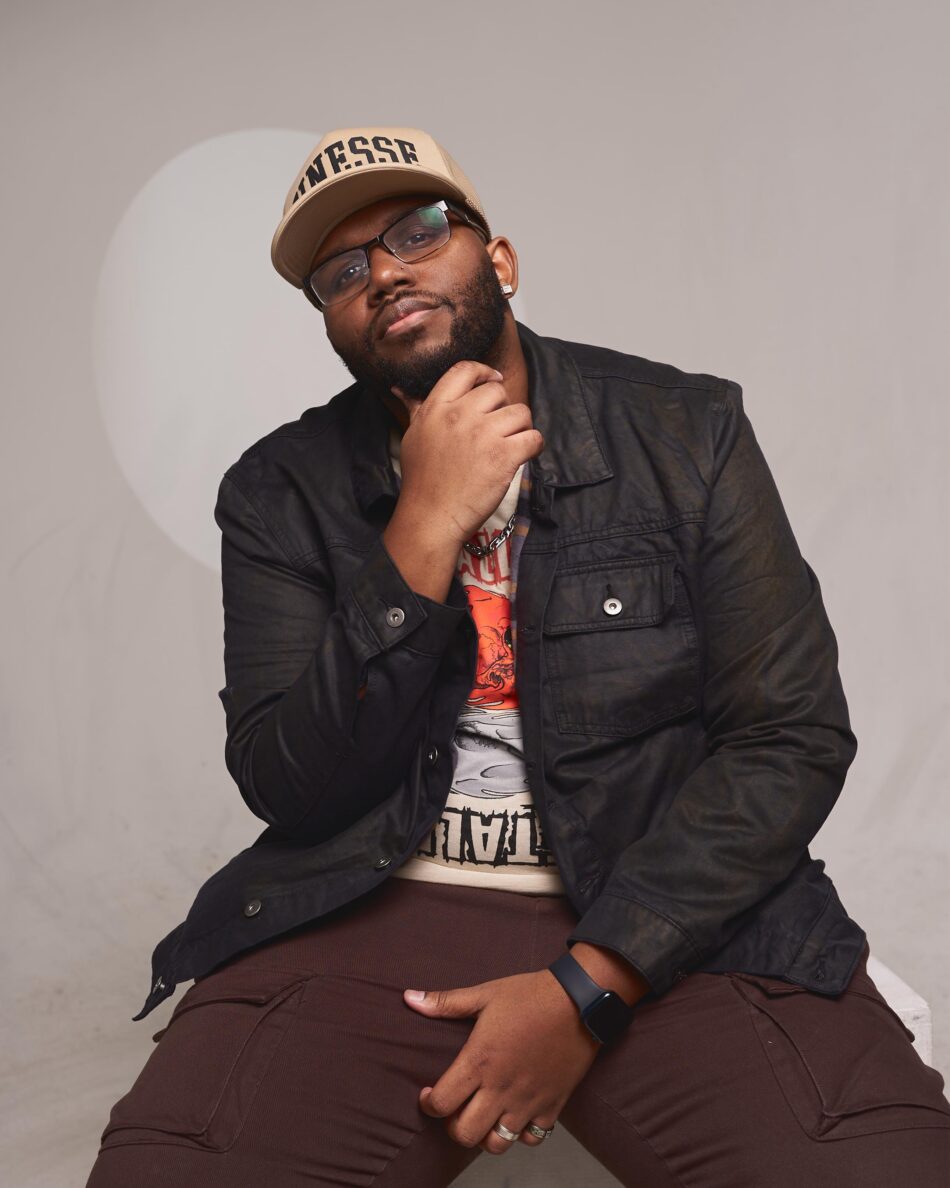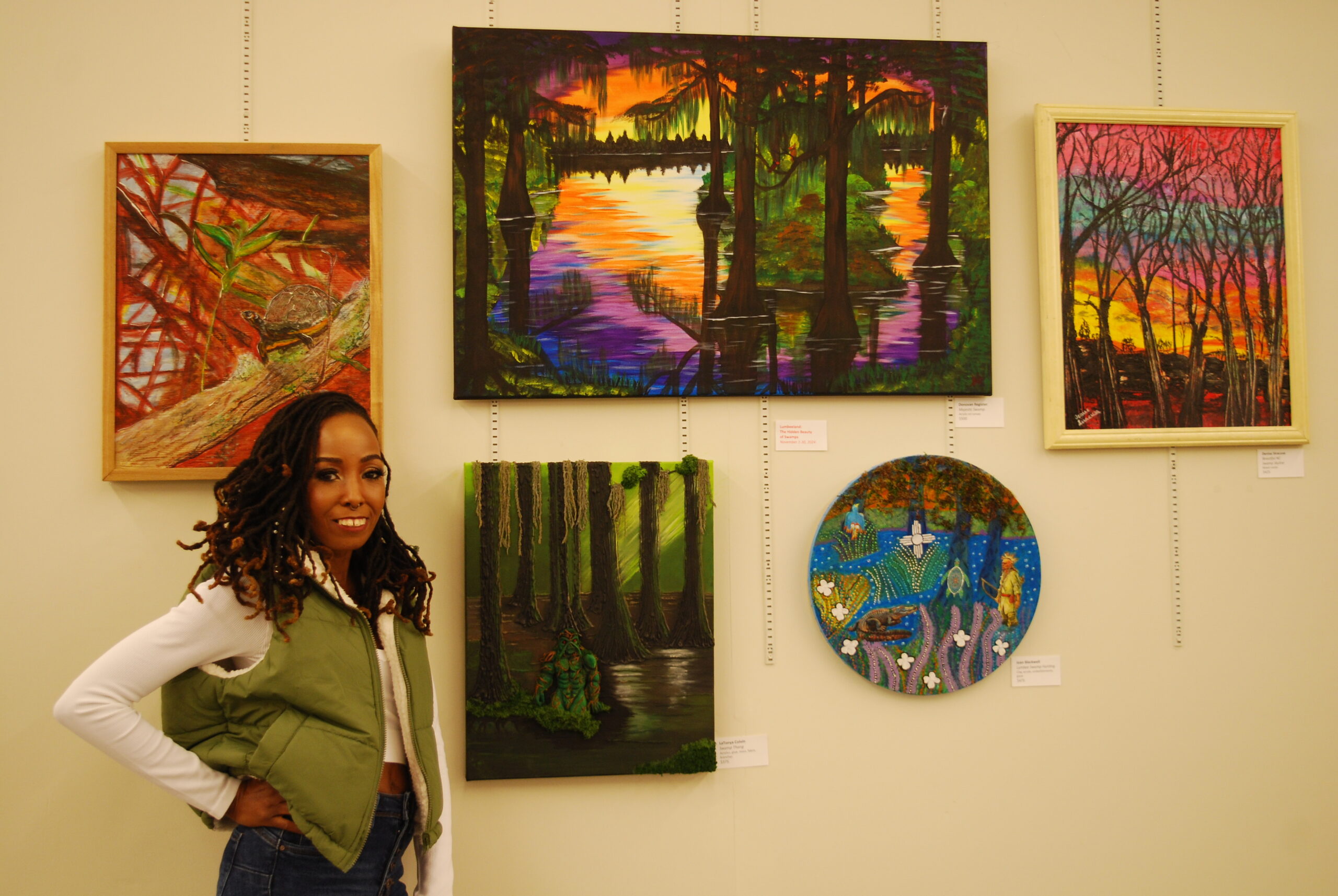As a Bronx-born dancer and choreographer, Ronald Coleman is leading HeartBreak Crew 15 years later.
Growing up the son of a DJ, Ronald Coleman’s love for music and dance just came naturally. Coleman grew up watching hip-hop movies and dancing with his friends in the Bronx. He started dancing at the age of eight and formed his first dance crew at the age of 13. In the beginning, it was just about having fun, but the crew grew to participate in competitions, showcases and more across the tri-state all while maintaining their love for hip-hop dance.
Heartbreak Crew, or HBC, is a Bronx-based hip-hop dance company led by Coleman that started in 2009. It began with a bunch of young Bronx natives who performed together in a series of shows who decided to come together and create HeartBreak Crew. But it’s also more than just a dance crew. They were born out of personal challenges and heartbreaks, hence the name Heartbreak Crew. In addition to the fun environment and release of dance, the posse also supports each other during trying times.
Under the direction of Coleman, HBC has become a place for people to come and learn the foundations of hip-hop, especially since HBC was born in the borough where hip-hop dance originated. He’s currently gearing up HBC for competition season and wants to host more events in the Bronx. He hopes to one day open up a dance studio for kids in the Bronx to learn more about hip-hop and make learning more accessible.
In a conversation for Pavement Pieces, Coleman looked back on how he emerged in dance and his. career aspirations as a choreographer.
This conversation has been edited and condensed for clarity.
When did you begin your journey with dance?
I was eight when I was introduced to famous hip-hop movies like Beat Street and Breakin, also my father was a DJ, so all of that and my love for music and the discovery of hip-hop dance all together made me fall in love with the art. I was eight, so it was just playful dancing, just doing what I saw in the movies and trying to imitate certain movements. I was really heavily influenced by the style of popping and waving. I wasn’t doing choreography, I would just playfully freestyle and just copy the scenes I saw in the movies. Then around 13, I decided to make a dance team with my friends, and it’s been a part of my life ever since.
When did you begin choreographing? Tell us about your first experience.
At that time we would meet up at each other’s houses and come up with moves, but it was more of the freestyle and popping that I enjoyed the most. I remember the scene in Breakin where Turbo was freestyling with the broom. But it wasn’t until I met my two best friends that we started making choreography. At 13 is when we started making choreography and again, and before this, I didn’t really have any training, I wasn’t in a school for dance, I wasn’t on a dance team at school or anything. It was just us watching the movie and saying, ‘Hey, we want to do this. Let’s get together and make it happen.’
What inspired you to start HeartBreak Crew and where did the name come from?
Before we actually became HeartBreak Crew, and this was in 2009, I believe I was 17, there were some issues between me and another one of my best friends at the time who was also one of the leaders of a team. We had a falling out and through that the team had kind of separated and those members who were left, we were trying to keep things together and we were going through a lot of personal stuff. The same year we started HeartBreak Crew is the same year my father passed away. And other members were going through things. 2009 was a crazy year. So we were sitting down having a meeting and we were like ‘What about HeartBreak Crew?’ since we were all going through stuff and all of us keeping each other sane, that sounded like the best route because we were all going through it at the time. So then that just clicked and we stuck and ran with it.
What did you envision for the group in the beginning?
To be honest, there weren’t any specific goals in mind. it was more of just creating a space where people can feel comfortable and create a family outside of their regular family. 2009 was so hard for a lot of us that it was just like ‘Let’s create a space where we can still do what we love, which is dance, but also be in a space where we can be vulnerable and safe with each other.’ It was more of us knowing we had that space to be around each other to be goofy and dance and just have a good time, but also knowing that we can reach out to each other whenever times get rocky.
What’s the biggest challenge you’ve faced as a choreographer?
A lot of times it’s like rinse and repeat with choreography. Nothing is really new for the most part and I think it can be difficult when you see choreographers, old and new choreographers, with the same type of movement. And the masses see it and they want to do that style. But I believe heartbreak is kind of in their own. You can see the style difference between our performances and others. And at times, it can feel like ‘Am I doing the wrong thing?’ But there’s then there’s also those moments of clarity. I enjoy that we look different. It’s not all the same thing. We’re not all doing the same thing. Also, I am a leader of a company and dealing with a lot of different energies, emotions. characters, egos, so on and so forth.
What’s a big strength of HBC that no other crew has?
The fact that we are sticklers on adding foundation to our pieces. It’s kind of becoming a lost art in certain places. But you come here, you’re going to learn these things. Whether you know how to pop or not, you’re gonna learn. You’re gonna learn how to rock, you’re gonna learn how to groove, you’re gonna learn how to pop, you’re gonna learn how to wave, lock, you’re gonna learn all of these things.
What advice would you give to an aspiring choreographer?
To definitely never forget to be a student first. I feel like at times, we get into a position where we’re leading a lot more and we forget to still get to class or still read a book or work on your freestyling like. A lot of times we forget that. So definitely never forget to still be a student of the art because, again, nothing is new, but it’s always evolving. Realistically I’m a parent, there’s a lot less time for me to get into class or or go to sessions and that kind of stuff, but I can watch videos and learn, I can watch shows and see how people operate and learn from engaging in the art itself. I feel like that is huge. Definitely as a choreographer, you should always remember to be a student and also don’t be scared to step out of the boundary as well. I’ve learned how to create a contemporary piece, I’ve trained in African and I’ve trained in a lot of other styles, and so I don’t want anyone to feel limited. These other styles are only going to enhance what you can do with your body and your mind.
What does the future of HBC look like?
Right now we’re definitely working on getting back into the competing scene, which me and a lot of my members are very excited about. This year we are going to be hosting a lot more shows for the community. I think there’s a lot going on within the dance community right now and it’s amazing. I would love to have more events in the Bronx, so that is definitely on the list of plans for this year and for the future. Definitely want to host more events. Definitely more so in the Bronx, but I’m not going to limit us from other boroughs either. But the goal right now the main focus right now is to bring more to the Bronx. A long-term goal is to definitely open a dance studio. We want it to be able to bring a lot more attention to the Bronx. The Bronx is like the birthplace of hip hop, so we want to build a safe place for these kids who come up in the Bronx and can’t make it to the city or can pay $25 for a class, or we just want to build a space where people can come and have something at the place where Hip Hop started. You have all these amazing, beautiful studios in the city and Harlem. Like Harlem has a School of the Arts. Why are we lacking these things at the birthplace of hip-hop? So that’s one of the major goals for the future. To create these spaces for these kids to train and to learn more about the culture.


